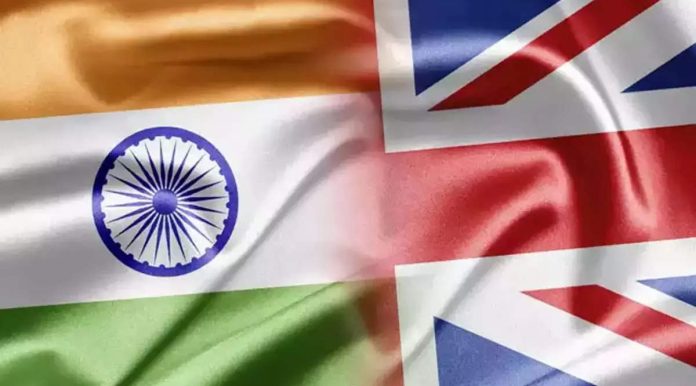- The geopolitical and geostrategic scenario has undergone tremendous changes during the last couple of years on the back of the pandemic and the ongoing Russia-Ukraine conflict needs no elaboration. Established economies are facing the heat from the twin challenges that have garnered the required attention globally is also well circulated. That the global economies are teetering under the deluge of inflationary trends reminds us of how fragile the ecosystem is to sustain and thrive. Gone are the days when restrictive trade practices were used to define the haves and have-nots. With the borders opening up, the free movement of goods and personnel has become the accepted norm which proved to be beneficial to all stakeholders.

PC: Diana Andrunyk/Bloomberg CityLab
- Yes, several free trade agreements (FTA) between the countries – both bilateral and multilateral – mutually help the stakeholders to benefit from unrestricted access. As reported, India and the UK were aiming to freeze the FTA for quite some time now but couldn’t progress beyond talks for want of common grounds, especially the free movement of people. Now, UK international secretary has pointed out that the country left the EU precisely because it does not believe in the free movement of people. Consequently, visa liberalization under the proposed India-UK FTA is not up for negotiation. But in that case, there’s not much left to negotiate. To begin with, in the ongoing FTA talks, the potential of enhanced trade through an India-UK deal is underwhelming.
- Note that the two-way trade between India-UK in 2021-22 was $ 17.5 billion, lower than India’s trade with Germany or with Belgium. As a proportion of India’s overall merchandise trade, it was less than 2%. In such a scenario, the likelihood of freer movement of skilled labour and students between India and the UK could have provided an incentive to quicken the pace of negotiations. But given the UK’s domestic politics, visa liberalization appears to be dead in the water. Mind you, FTAs require tradeoffs as some domestic interests have to be set aside in the pursuit of larger gains from lowering trade barriers. Apparently, the UK government is reluctant to spend political capital on visa liberalization, even if it makes economic sense.

PC: India Today Web Desk
- This makes the tradeoff harder to justify for India since the UK’s own assessment doesn’t show eye-catching returns if the FTA is concluded. Access to India’s huge market appears to be the UK’s primary incentive. An FTA which lowers tariffs for British exporters helps the UK. Conversely, with UK tariffs already low, what’s the potential big gain for India when the freer movement of people is not on the cards? Did someone say quid pro quo? Of course, it has to be mutually beneficial to enter into FTAs. If the UK wishes Indian markets to lay out the red carpet but imposes restrictions on the free movement of people, then it should be summarily rejected by the Indian think tank. Rather our focus should be to diligently pursue entering into FTAs with the EU and US.






